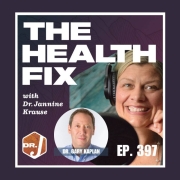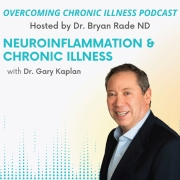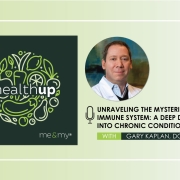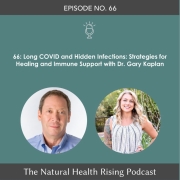A modified model for understanding depression and anxiety ought to involve a whole person, integrative approach.
Public acts of violence seem to fill the news media streams these days and are typically followed by outcries for greater access to mental health care for those that need it most. And although almost all individuals with serious mental illness are not dangerous, many of the perpetrators of these heinous crimes later turn out to have a documented history of depression or mental illness, which often went untreated.
So, what can we do to stop the anguish? What is it that we are missing?
The Cost of Failure
Unfortunately, the number of Americans affected by serious depression and anxiety disorders is enormous, as are the costs to society due to failure to treat and/or treatment failure. Tens of millions of Americans suffer from depression, including chronic, low-grade depression (dysthymia) and anxiety. 21 million of those Americans have been diagnosed with major depressive disorder (MDD), the leading cause of disability for people ages 15 to 44.
The cost of failing to effectively treat these conditions is not just the individual’s inability to complete college, hold a job or cultivate positive relationships; it also includes the toll taken on an entire family and community when a despairing person takes their own life. And in other cases, the costs of acts of public violence – in terms of suffering, municipal expenses, personal medical and legal expenses, and lost human potential – are immeasurable.
Michael, a 17-year-old high school student, came to see me with a long history of hospitalizations after attempting to take his own life. Despite undergoing intensive psychiatric treatment, he remained depressed and suicidal. Like 40 percent of those who suffer from major depressive disorder, Michael was not responding to treatment.
When contemplating a situation like Michael’s, the question “What am I missing?” is never far from my mind. Statistics show that only about one-third of patients with MDD respond to antidepressant medication, with about the same number responding to psychotherapy alone. If we combine the two approaches the numbers improve slightly, but the fact remains that most people with MDD respond only partially to medical interventions, with almost half remaining entirely unresponsive.
A Central Nervous System in Turmoil
There is a mountain of scientific research demonstrating that neuropsychiatric conditions such as depression, anxiety disorders, and possibly bipolar disease are, in a very high percentage of cases, the result of inflammation occurring in the brain.
There is a great deal of research linking generalized inflammation to heart disease, chronic pain, and obesity. Inflammation in the body takes many forms: When we have an allergic response to pollen or food, our bodies’ inflammatory response includes the release of histamine, which makes our eyes itch and noses run; we see the inflammation associated with a skin wound when the white cells of our immune system respond to a bacterial infection. Inflammation in our brains, however, is unique in that it is mediated by tiny cells called microglia.
Microglia are the innate immune system of the central nervous system (CNS). Their job is to respond to trauma and damage to the brain. In response to brain injury, the microglia release a virtual symphony of chemical mediators that orchestrate the destruction of bacterial invaders, the elimination of damaged neuronal tissue, and the initiation of the repair process.
After responding to an assault on the brain, microglia typically return to a resting state. But ongoing and cumulative assaults to the brain will cause the microglia to remain chronically up-regulated, causing them to continuously spew out inflammatory, tissue-destroying chemicals. Examples of ongoing assaults include fever, physical assault, and emotional trauma. It can also be infections like Lyme disease or COVID-19.
Since the beginning of the COVID-19 pandemic, researchers have been studying how the SARS-CoV-2 virus affects the CNS as well as other body systems. What they are finding out is that it too heightens the activity of microglia leading to the release of inflammatory cytokines and a sequence of damaging events that can affect the brain and have other long-term effects on health.
Brain inflammation can produce a wide range of symptoms including depression, anxiety, chronic pain, difficulty focusing and concentrating, fatigue, and sleep disturbances.
Further compounding the issue is the fact that a solid understanding of the role of microglia in brain health is sadly lacking among most medical professionals, with the result that they continue to treat what are in fact “symptoms” as separate and unique “diseases.”
Looking Beyond the Symptoms
A better framework, where physicians look beyond the symptoms, involves giving priority to the discovery of the root causes of an individual’s depression or anxiety. This primarily requires an understanding of what caused the microglia to up-regulate.
Research has shown that anything that can damage neuronal tissue can be a trigger. So, an exploration of a patient’s depression may include asking them about possible traumatic head injuries, psychological traumas (acute events and chronic stress), infections (as mentioned above, tick-borne diseases, other bacteria, and viruses like Covid-19), and even biotoxins that may have entered the body from exposure to toxic molds, celiac disease, and hypoxia (usually related to sleep apnea). The list of triggers is long, and as such, the process of identifying the possible underlying causes of the disease requires putting together a thorough medical health timeline for each patient. By using this approach, treatment options expand due to the greater understanding of the origin of the illness, thereby increasing prospects for recovery.
As for Michael, my 17-year-old patient who was depressed and suicidal, it turned out that he has celiac disease. But how could a food allergy be related to his depression? Celiac disease is far more than an allergy to gluten – it is a very serious autoimmune disorder that’s triggered when even the smallest amount of gluten is ingested. As we know, with autoimmune disorders the immune system mistakenly attacks the body’s normal cells. In the case of celiac disease, when gluten is consumed the immune system goes into attack mode and causes damage to the healthy villi of the gut lining. Villi are responsible for absorbing nutrients and keeping food particles and toxins from entering the bloodstream. When the gut lining is compromised and toxins enter the bloodstream, widespread inflammation can occur, and this inflammatory response can affect more than the digestive system – it can cause inflammation in the brain. Research shows that people with celiac disease are at greater risk of neurological damage and mental health issues in addition to other serious chronic health conditions.
Michael, now gluten-free, is no longer depressed and he has re-engaged in life. He continued with antidepressant medications for a period of time, but slowly weaned himself from them under medical supervision (it takes time for the brain to heal after the assault is removed). His life has been changed, for the better, forever.
It is my hope that, with a modified model for understanding depression and anxiety, involving a “whole” person, integrative approach, more patients will be correctly diagnosed and treated, as Michael was. In his case, and I suspect in many more, we’re learning that all too often, depression is not just depression.
This article originally appeared in US News and World Reports, May 12, 2015. It was reviewed and updated in May 2023.
We are here for you, and we want to help.
Our goal is to return you to optimal health as soon as possible. To schedule an appointment please call: 703-532-4892 x2
Additional references
InformedHealth.org [Internet]. Cologne, Germany: Institute for Quality and Efficiency in Health Care (IQWiG); 2006-. Depression: How effective are antidepressants? [Updated 2020 Jun 18].
Mohammadkhanizadeh A, Nikbakht F. Investigating the potential mechanisms of depression induced-by COVID-19 infection in patients. J Clin Neurosci. 2021 Sep;91:283-287. doi: 10.1016/j.jocn.2021.07.023. Epub 2021 Jul 20. PMID: 34373041; PMCID: PMC8289699.











